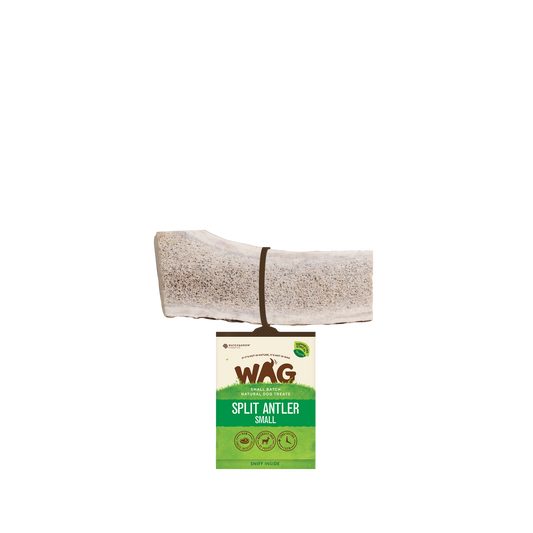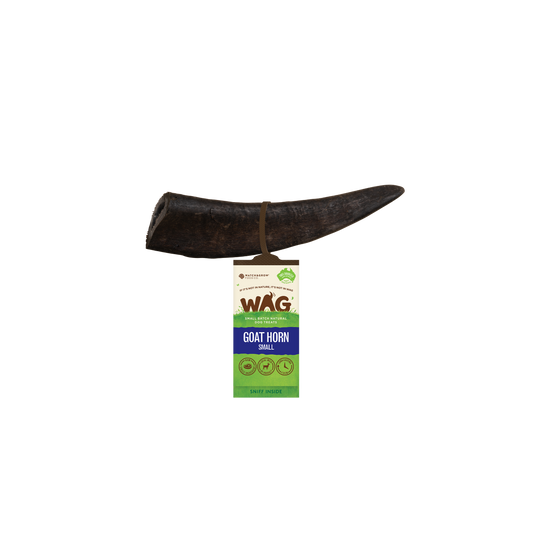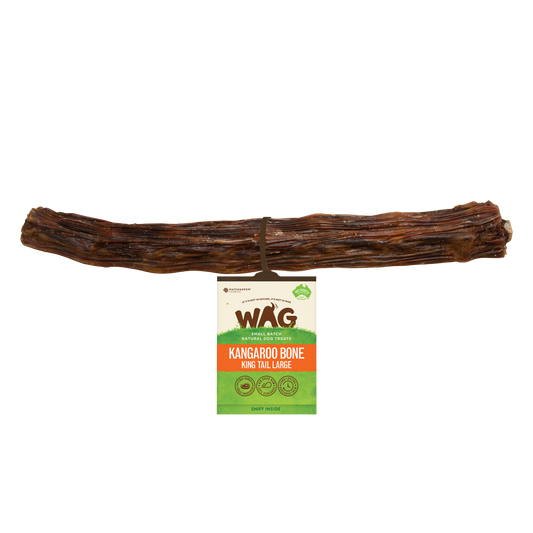Dogs love to chew. Why? Chewing is a natural behaviour for dogs and their way of keeping jaws strong and those pearly-whites clean.
It can also help with mild frustration and anxiety and help stimulate your pup throughout the day. Destructive chewing can occur when your doggo isn’t given the opportunity to exercise those teeth and really chomp into something.
Read on to discover the best dog chews to entertain your dog (and protect your furniture).
What chew will be best for my dog?
There are so many different chewable options for you and your pooch to chews from (sorry – we couldn’t help ourselves). But as a dog owner, you need to know why your dog’s age and size might affect the chews they can eat. Depending on the age of your dog, and their jaw strength, your pooch might need something tougher or softer than the next-door neighbour’s Fido.
Best chews for adult dogs
Luckily, most adult dogs – that is, dogs aged between 2 and 15 years – have the most options available to them! Size options really depend on whether your dog is a small, medium or large breed. This isn’t just for the size of your treat: it means that your dog will get the best chewing experience they can for their size. Chewing is meant to entertain your pup as much as nourish, so the last thing you want is to give them a treat that gets devoured in a single crunch, or, vice versa – a treat they won’t ever be able to finish and frustrates them.
That being said, dogs with a lot of jaw strength and strong, adult teeth might prefer firm chew treats that don’t break down easily. Treats like goat horns, kangaroo bones and deer antlers are perfect for dogs with chewing power and will keep them occupied for hours. For a medium-length chew that still packs a punch, you want to look to bully sticks, large beef tendons or thick bully bites for small but mighty dogs.
Best chews for senior dogs
It’s important to know what to feed your pooch depending on their age. As your dog gets older, they need to work harder to chew at the same rate as they used to. Senior dogs want something a little bit softer to sink their teeth in, and you want to help give those older jaws a rest. Also, their teeth are more prone to breakages.
Softer chews will give them the chewing stimulation they desire and help their teeth without the added strain. Though, keep it in moderation because with age, comes less exercise. And less exercise means an increased likelihood of weight gain.
For senior dogs, you want to treat ‘em with soft chews like moo tubes or rabbit ears. Jerky is also a great option for a softer chewing experience.
Best chews for puppies
Chewing is incredibly important for puppies! It works as a stimulant and pain reliever during teething. And any puppy that isn’t given enough opportunity for productive chewing will get creative with items around the house (RIP ya slippers).
A puppy has fewer teeth than an adult dog and most chews that are available to adult dogs won’t be suitable for a small pup. The best dog chews for your new family member will be soft treats that can keep your pup entertained without damaging their brand new pearly-whites.
Not sure what to try first for your new pup? Check out our Puppy Pack to keep your puppy occupied. Better yet – use roo liver treats or kangaroo cubes in puzzles or training to aid with your pup’s mental stimulation and entertainment.
As with any treat for a puppy or adult dog, we suggest giving treats for up to 30 minutes a day, supervised and removing any pieces once they’re too small (to avoid choking).
What dog chews should I avoid?
Not all dog treats are made equal and unfortunately, there are some products available that can do more harm than good to your pooch.
Rawhide
Traditional rawhide is arguably one of the most dangerous chews on the market. Rawhide undergoes a chemical process and can include many substances that are toxic to dogs, including glue. Despite being readily available at supermarkets and even pet stores, rawhide should always be substituted with a natural chew product like WAG Collagen Sticks.
Processed Jerky
Similarly, processed unnatural jerky products should be avoided at all costs.
Highly processed jerky could also be anything that’s made using preservatives, artificial flavours, artificial ingredients and excess salts. These added extras can mean the difference between an all-natural snack that nourishes your dog’s health, or a cheat treat that’s doing more harm than good. The US Food & Drug Administration has been warning pet owners against processed jerky products, particularly those imported from China, since 2007.
If you can’t understand the ingredients in a jerky product, it’s best to steer clear. We pride ourselves on having 100% meat jerky products and a 100% natural range of functional jerky.
Artificial Sweeteners
Dog treats or chews with artificial sweeteners can also pose a risk to your dog. Xylitol is a very popular artificial sweetener and can be found in everything from toothpaste to peanut butter. But it’s poisonous to dogs. If you think your dog has a sweet tooth, you’re better off looking at products with small amounts of natural sugars such as fructose – trying out options like yoghurt drops or fruits like raspberries.
And if you can’t understand the description of ingredients or the packaging is vague, it’s a good sign to put that treat back on the shelf.
Which dog chews should I use for training?
Chewable treats are a great way to train your dog and keep them mentally stimulated and entertained. Ideally, treats doled out in smaller portions will be great for reward-based training because they keep your dog’s mind focused on the training at hand (or paw), without distracting them.
Yoghurt drops are the perfect cheat-treat for the task – they will have them sitting pretty in no time. Yoghurt drops are a healthy and tasty sweet treat (handed out in moderation) and suitable for dogs of all ages and sizes, puppy or senior.
Shop the Recipe
WAG Team
Up Next
Is rawhide bad for my dog?




